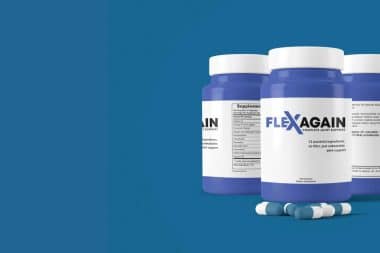Healthy eating habits are important for elderly people to prevent diseases, as well as manage chronic diseases or other health complications associated with aging.
However, some senior citizens could find it challenging to prepare meals and go food shopping for the healthy foods they seek, hence a great number of the elderly population relies on nursing homes. Unfortunately, not all nursing homes deliver what they promise and may even participate in unethical practices. To combat this, attorneys today are increasingly representing victims of nursing home abuse, helping them get the justice they deserve.

Whether you are taking care of an elderly or are someone who’s self-sufficient, you may maintain or enhance health by understanding what defines proper nutrition and watching what you consume.
In addition to giving you energy and aiding in weight management, a healthy diet may also help you avoid conditions like cardiovascular disease, increased blood pressure, type II diabetes, osteoporosis, as well as some cancers. Learn all about diet for the elderly through this article.
Nutrition For Elderly Individuals
Your health and lifestyle change as you get older. Thus, what it takes to maintain your health also evolves. For instance, you might require more protein or lower calories. A young individual’s needs for maintaining health could be very different from those of an elderly person.
The goal of nutrition is to provide your body with the essential nutrients it demands by eating a well-balanced diet. Our bodies require nutrients from food in order to function and flourish. They consist of water, minerals, vitamins, proteins, lipids, and carbs.
Having a healthy diet is crucial at any age. It provides you with energy and can aid with weight management. Additionally, it might aid in the prevention of various conditions like fractures, high blood pressure, cardiovascular disease, and particular malignancies. However, as you get older, your life and body change, as well as the things you need to stay healthy and fit.
What Constitutes A Balanced Diet?
A diet that is well-balanced includes a variety of organic foods, such as fruits, veggies, whole grains, dairy products, and proteins. You should consume a wide mix of these items, with poultry and lean meat providing the protein and low-fat dairy items providing the fat.

A well-balanced diet also involves limiting some foods, including those that have been highly processed and those that are rich in salt. If you want to eat a diet that is nutritionally sound and well-balanced, you need also pay particular attention to how much fat and cholesterol you consume.
In a well-balanced diet, micronutrients also play a significant role. Micronutrients, which comprise vitamins and minerals, are needed in minute amounts and are crucial.
Tips On Choosing Healthier Food As You Age
Here are five suggestions to assist you in choosing the right foods for your body and your wallet.
1. Search for crucial nutrients
To acquire all the nutrients you require, make sure you consume a wide range of meals. Bright, colorful meals are always the greatest choice; your plate should resemble a rainbow! A balanced meal should contain:
- Healthy protein (meats such as chicken, eggs, or beans)
- Veggies and fruits (citrus, vitamin-rich, etc.)
- Whole grains
- Reduced-fat dairy (milk and related alternatives)
Do not forget to select foods that are rich in fiber and minimal in salt or sodium. Additionally, keep an eye out for vitamin D, a vital nutrient as we age.
2. Remain hydrated
Additionally, water is a crucial nutrient. Avoid being dehydrated by constantly consuming little amounts of liquids during the day. While tea (without milk) and coffee can also be consumed, it is best to keep the intake of these beverages limited. Until your doctor advises otherwise, limit your intake of sugary and salty liquids as well.
3. Make a meal plan
You may eat well and spend less money at the grocery store by making your meals in advance. Knowing your weekly meal plan will help you avoid making poor decisions, such as eating packaged food, out of convenience.
Additionally, you won’t end up purchasing too much food that spoils before you can consume it. Prepare your meals in advance and freeze them until you’re ready to eat them.
4. Reduce your sugar intake
Refined sugars are high in nutritionally worthless empty calories. Reduce your consumption of sugar-laden foods gradually and swap them out for complete foods that are naturally sweet, including fruits and sweet peppers. Before considering dietary changes, talk to your doctor.
5. Include physical exercise
A healthy lifestyle is best achieved by combining exercise with a balanced diet. Make it a point to get some exercise every day for at least 30 minutes. This can be broken up into shorter, daily bursts of 10-15 minutes. Start out slowly if you aren’t already active, then gradually increase your level of activity.
Conclusion
All throughout your life, especially as you get older, eating nutritiously is vital. Selecting foods that are higher in nutrients and lower in calories may help you avoid or treat chronic health problems. Additionally, it might make you feel energized and stronger, enabling you to relish your later years.









Reply